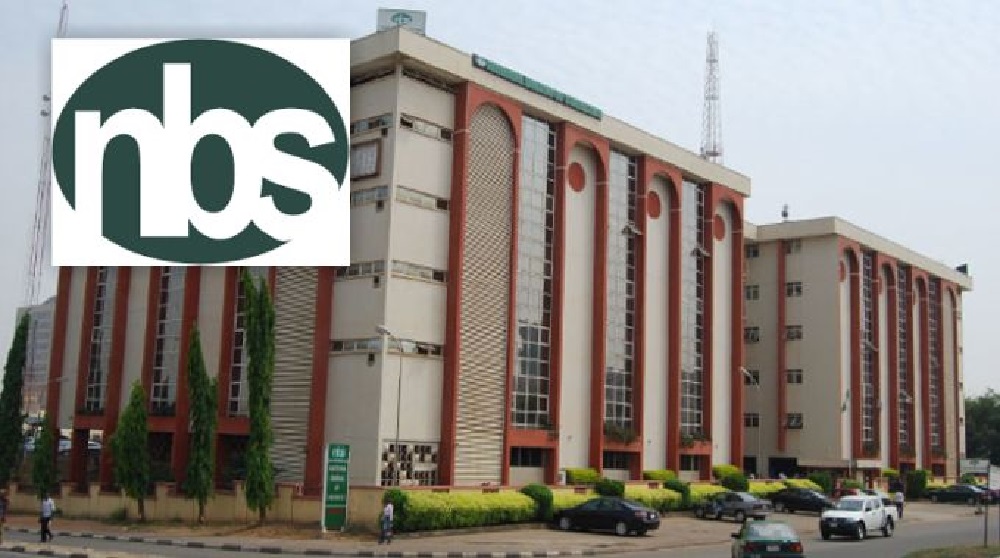Economy
FG to begin crude oil sales in Naira to Dangote, others October 1

The Federal Government has announced that it will begin making payments in Naira for crude oil sales to the Dangote Refinery and other entities starting October 1, 2024.
This marks a significant milestone in Nigeria’s economic transformation.
Additionally, it has been revealed that the first delivery of Premium Motor Spirit (PMS) from the Dangote Refinery is anticipated in September, according to existing agreements.
The decision was reached on Monday during a key meeting of the Implementation Committee on Crude Oil Sales in Naira, chaired by the Minister of Finance and Coordinating Minister of the Economy, Mr. Wale Edun, at his office in Abuja.
This meeting underscored a crucial step toward fulfilling the Presidential directive aimed at bolstering Nigeria’s economic growth and development.
In a statement, Mohammed Manga, Director of Information and Public Relations at the Federal Ministry of Finance, said, “the Committee reviewed progress on major initiatives, including the upcoming implementation of Naira payments for crude oil sales to the Dangote Refinery starting from October 1, 2024.
This represents a significant milestone in Nigeria’s economic transformation.”
Dr. Zacch Adedeji, Executive Chairman of the Federal Inland Revenue Service (FIRS) and Chairman of the Technical Sub-Committee, reported that the first PMS delivery from Dangote is expected next month, according to the existing agreements.
Key roles for stakeholders—including the Nigerian Midstream and Downstream Petroleum Regulatory Authority (NMDPRA), Central Bank of Nigeria (CBN), Nigerian Upstream Petroleum Regulatory Commission (NUPRC), and the African Export-Import Bank (Afreximbank)—were outlined to ensure smooth implementation.
Manga also noted that updates on the Port Harcourt and Dangote Refineries indicated significant production increases are expected from November 2024.
The Minister emphasized the importance of transparency and instructed the Technical Sub-Committee to finalize the details and prepare a report for the President, ensuring that the directives are on track for implementation from September.
With the progress made by the Implementation Committee and Mr. Edun’s guidance, Nigeria is set to experience a smooth transition to Naira payments for crude oil sales.
The collaboration among stakeholders, including regulatory bodies and financial institutions, will ensure a transparent and efficient implementation process.
This economic milestone is expected to have a profound impact on Nigeria’s growth and development, setting a new standard for economic prosperity.
Economy
Dangote Refinery, NNPCL resume fight over $1bn loan

Dangote Group, owners of Dangote Refinery, and the Nigerian National Petroleum Company Limited, NNPCL, have clashed over a $1 billion crude oil-backed loan.
Recall that barely 24 hours ago, in a statement credited to NNPCL spokesperson Olufemi Soneye, the state-owned oil firm said it secured a $1 billion loan backed by crude to support the Dangote Refinery during liquidity challenges.
However, Dangote Group spokesperson, Anthony Chijiena, has described NNPCL’s claim as ‘misinformation’.
The company clarified that the $1 billion crude backed loan is about five percent of the total investment that went into building the 650,000 barrels per day refinery.
According to him, it is inaccurate to say NNPCL facilitated $1 billion for Dangote Refinery amid liquidity challenges.
Chijiena explained that NNPCL had proposed a 20 percent stake investment valued at $2.76 billion in the Dangote Refinery, but that didn’t materialise.
He noted that NNPCL was able to invest $1 billion, which amounts to 7.24 percent equity value.
“Our decision to enter into a partnership with NNPCL was based on recognition of their strategic position in the industry as the largest offtaker of Nigerian crude and, at the time, the sole supplier of gasoline into Nigeria.
“We agreed on the sale of a 20 percent stake at a value of $2.76 billion. Of this, we agreed that they will only pay $1 billion while the balance will be recovered over a period of 5 years through deductions on crude oil that they supply to us and from dividends due to them.
“If we were struggling with liquidity challenges, we wouldn’t have given them such generous payment terms.
“As of 2021, when the agreement was signed, the refinery was at the pre-commission stage. In addition, if we were struggling with liquidity issues, this agreement would have been cash-based rather than credit-driven.
“Unfortunately, NNPCL was later unable to supply the agreed 300 thousand barrels a day of crude, given that they had committed a greater part of their crude cargoes to financiers with the expectation of higher production, which they were unable to achieve.
“We subsequently gave them a 12-month period for them to pay cash for the balance of their equity given their
inability to supply the agreed crude oil volume.
“NNPCL failed to meet this deadline, which expired on June 30th, 2024. As a result, their equity share was revised down to 7.24 percent. These events have been widely reported by both parties.
“It is, therefore, inaccurate to claim that NNPCL facilitated a $1 billion investment amid liquidity challenges.
“Like all business partners, NNPCL invested $1 billion in the refinery to acquire an ownership stake of 7.24 percent. That is beneficial to its interests,” the Dangote Group statement said.
Economy
Nigeria’s National Bureau of Statistics Website Hacked

The National Bureau of Statistics (NBS) on Wednesday announced that its official website has been hacked.
The bureau disclosed this on its X handle.
The NBS announced that it is currently working to recover the website and urged the public to disregard any messages or reports posted on the site until it is fully restored.
“This is to inform the public that the NBS Website has been hacked and we are working to recover it. Please disregard any message or report posted until the website is fully restored. Thank you,” the NBS said.
The NBS is the principal agency responsible for the collection, analysis, and dissemination of statistical data in Nigeria.
The statistics office has recently published several key reports such as the Nigerian Gross Domestic Product (GDP) Report Q3 2024, which provides an update on Nigeria’s economic growth and performance, the Nigeria Labour Force Survey (NLFS) report for Q2 2024, which offers insights into Nigeria’s labor market, including employment and unemployment rates and the Consumer Price Index November 2024, which provides the latest information on Nigeria’s inflation rate, among others.
In November, the NBS said Nigeria’s GDP grew by 3.46 per cent year-on-year in real terms in the third quarter of 2024.
The NBS said this growth rate is higher than the 2.54 per cent recorded in the third quarter of 2023 and higher than the second quarter of 2024 growth of 3.19 per cent.
On Monday, the NBS said Nigeria’s annual inflation rate rose to 34.60 per cent in November from 33.88 per cent in October.
This marks a continuation of the upward trend observed in September, when the nation recorded a reversal of a two-month decline.
Economy
UK inflation rises further ahead of Bank of England rates decision

UK inflation climbed to 2.6% in November, up from 2.3% in October, according to the Office for National Statistics (ONS).
The rise matches market expectations and comes as the Bank of England prepares for its upcoming decision on interest rates later this week.
Core inflation, which excludes volatile items such as food and energy, also increased to 3.5% from 3.3% in October. However, this was slightly below the anticipated figure of 3.6%. Services inflation, closely watched by the Bank of England for signs of domestic price pressures, remained steady at 5%, slightly below market expectations of 5.1%.
Earlier this year, falling inflation allowed the Bank of England’s Monetary Policy Committee (MPC) to lower interest rates in August and November. The headline rate dropped to 1.7% in September but has since been pushed higher by rising energy costs and persistent services inflation.
Despite the recent uptick, the Bank of England is widely expected to keep interest rates on hold at its meeting this week. Markets remain divided on whether a rate cut will come at the February meeting.
Michael Brown, senior research strategist at Pepperstone, highlighted the challenges ahead. “While risks to this base case are tilted towards a more dovish outcome, given increasing signs of overall economic momentum stalling, policymakers will be rapidly seeking convincing signs of disinflationary progress being made, as the economic cocktail facing UK Plc. increasingly becomes a stagflationary one,” he said.
The inflation figures follow Tuesday’s data showing stronger-than-expected wage growth. Average earnings, including bonuses, rose by 5.2%, exceeding the 4.6% forecast and October’s figure of 4.4%.
Chancellor to the Exchequer Rachel Reeves acknowledged the ongoing struggles faced by households. “I know families are still struggling with the cost of living and today’s figures are a reminder that for too long the economy has not worked for working people,” she said.
Reeves outlined recent measures aimed at supporting workers, including no increases to national insurance, income tax, or VAT, as well as boosting the national living wage by £1,400 and freezing fuel duty. “Since we arrived, real wages have grown at their fastest in three years. That’s an extra £20 a week after inflation. But I know there is more to do. I want working people to be better off, which is what our Plan for Change will deliver,” she added.
Inflation is expected to rise further in the coming year as the UK continues to take a more gradual approach to easing monetary policy compared to other developed central banks.
-

 News22 hours ago
News22 hours agoNetizens Slam Lawmakers As They Sing Tinubu’s Anthem At Budget Presentation
-

 News19 hours ago
News19 hours agoFinally, PDP Flushes Out Suspended National Vice Chairman, Ali Odefa
-

 News15 hours ago
News15 hours agoReps Call for Revival of NAPAC to Boost Transparency, Accountability
-

 News15 hours ago
News15 hours agoReps Recommends Delisting NECO, UI, Labour Ministry, 21 Others From 2025 Budget
-

 News9 hours ago
News9 hours agoLawmaker laments over 2023, 2024, 2025 budget running in one circle
-

 News8 hours ago
News8 hours agoVideo: Tinubu Arrives Lagos, Meets Old ‘Friend’ Papa Ajasco
-

 News21 hours ago
News21 hours agoPRESIDENT BOLA AHMED TINUBU TEXT OF THE 2025 BUDGET
-

 News16 hours ago
News16 hours agoNigeria Needs Comprehensive Reforms To Expand Its Tax Base – Speaker Abbas








